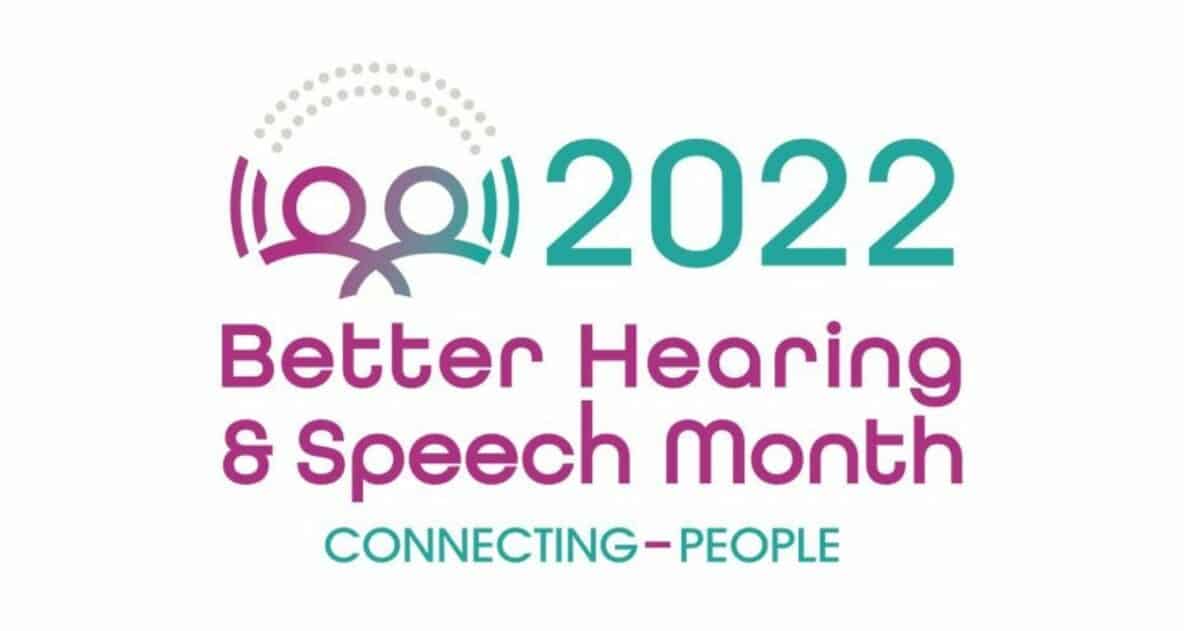An initiative of the American Speech-Hearing-Language Association (ASHA), May is Better Speech and Hearing Month. An annual effort to bring awareness to the particular issues surrounding communications disorders and the ways intervention improves lives, this year’s theme is Connecting People.
A group of professionals highly trained and invested in communication issues, ASHA brings together audiologists, speech-language pathologists, communications scientists, support staff in the field, students of these disciplines and more.
We know that we can do more together than apart, which is why gathering under the banner of Connecting People is such an important way to frame hearing loss and other communication issues.
How hearing loss works
Perhaps you’ve always pictured the ears as the heavy hitters of our sense of hearing. In fact, it is the tiny cells of the inner ear that are both instrumental to functional hearing and yet, extremely delicate and non-regenerative.
These cells play an outsized role in hearing as they’re responsible for receiving noise information from the outside world and turning it into sound information. That information is sent to the brain where it’s turned into language, music, and other meaningful audio.
Over time, due to excessive noise exposure or the simple aging process, those important cells become damaged or die. When that happens, we lose access to the full sounds around us. We hear less.
Signs of hearing loss
The early signs of hearing loss are very subtle, as we tend to lose frequencies (typically the high ones) instead of an overall lowering of volume. Losing the high frequencies in the world results in trouble with speech clarity, or trouble hearing conversation. Often, it begins to sound as if everyone is mumbling. You might find yourself asking others to frequently repeat themselves. Dialogue on television might become troublesome to understand. Easily conversing in a crowd will become effortful and challenging.
The thing is that we are adaptable creatures and we can easily become used to these little setbacks in conversation and begin to develop coping mechanisms, sometimes subconsciously. It’s often our friends and family that notice changes in our behavior before we realize that we are experiencing hearing loss.
How hearing loss cuts off connection
Fundamentally, hearing loss matters because it interrupts connection. As humans, we are social animals and we thrive in communities and groups. When it becomes difficult to engage in conversation, we often decide to simply avoid those situations.
Loss of connection sits at the heart of most people’s experiences of hearing loss, as people with the condition often report feelings of isolation and depression. Some studies have revealed that people with hearing loss are even less mobile than those without, which means that hearing loss pervades all facets of connection within our lives whether speech is involved or not.
In a qualitative study of people with hearing loss and their spouses, what participants (both those with hearing loss and without) reported to be most lacking in their current relationship was the joy of sharing everyday experiences and the small talk of a marriage.
The benefits of treating hearing loss
Fortunately, we live in a time in which treating hearing loss is easy and it makes a difference. 90 percent of people who have chosen to invest in hearing loss solutions like hearing aids report improved relationships. Most would recommend hearing aids to a friend experiencing hearing loss.
In a study by the National Council on Aging, it was found that hearing aids resulted in increased self-esteem, social life, physical health and nearly every other facet of their lives. A strong link found between hearing loss and cognitive disorders means that intervening in hearing loss can even lower your risk of dementia.
While the myriad benefits of hearing aids and other hearing loss interventions abound, there are few if any risks of exploring treatment.
Schedule a hearing consultation
If you’re ready to embrace connection again, schedule a hearing consultation today. Our team of hearing health professionals are here to guide you through the simple process of a hearing exam. From there, we’ll present your audiogram and discuss whether you might be a good candidate for a proven, effective hearing solution. Together, we’ll work towards giving you the best hearing experience possible.

